suggests that the way to get the UTC timestamp in Java is the following:
Instant.now() // Capture the current moment in UTC.
This, and most answers in this thread, are misleading.
Instant represents an instant in time. It's 'solarflares' time: Absolutely not one iota about it represents anything that is invented by human brains, and UTC is a timezone: A human invention. The cosmos, the sun, astronomy - they have no idea what UTC is, and don't care - and that's what Instant is all about. Instants are devoid of such human concepts as 'hours' or 'days' or 'timezones'. It makes no sense to ask an instant what day it happened on. It cannot tell you; some event occurred: If I ask a russian from the 19th century when that happened, they'll likely give a completely different answer vs. if I ask someone living a mere 100 miles west, for example. Instant doesn't know which localization to apply and thus doesn't let you ask it this question - that's a good thing, objects should not expose methods to which any answer it gives is either gobbledygook or at least requires knowing about all sorts of surprising caveats.
Crucially, if you tell me '... in UTC', you surely can tell with exacting detail which month, which day, etcetera. And Instant does not do this, which is why it is misleading to say that a java.time.Instant represents a moment of time in UTC. It doesn't. It represents a moment in time (not in any particular timezone).
Yeah, internally Instant, just like Date, is just a light wrapper around what System.currentTimeMillis() returns: "millis since epoch", but the crucial thing to understand about it, is that 'UTC' is not part of what it means, and therefore, when you give an Instant instance to some other method (such as System.out.println, to a database via JDBC, etc), that method is under absolutely no obligation to assume that UTC is semantically relevant.
When you want to mix human notions of time keeping (years, days, months, hours, minutes, milliseconds, and, yeah, timezones) with the notion of a more or less absolute* time, the right answer is java.time.ZonedDateTime. Note that any representation of time in something that isn't java.time.* based is by definition broken, as it is in most programming languages - turns out time is a lot more complex than most takes on a library to represent it realize. The fact that java.time is in effect the 4th attempt at writing a time library should be ample indication that it's hard to get it right.
ZonedDateTime zdt = ZonedDateTime.now(ZoneOffset.UTC);
THAT is what you want - that isn't just implementation-detail-wise what you want, but it is code that exactly describes what you mean: Right now, at the UTC time zone, stored in an object that semantically doesn't just store the right time but also stores, and tightly entangles into its very identity, that it is specifically in UTC and is not to be re-interpreted, moved to the local zone, or any other such shenanigans - at least, not unless you explicitly ask it to do so.
Date currentUtcTime = Date.from(Instant.now());
Note that Date is the old API and therefore necessarily broken. In this case, Date is a lying liar who lies - it doesn't represent a date, it represents an instant; it is badly named. (The second API is Calendar, also broken. For example, that is also a lying liar who lies: It doesn't represent a Calendar whatsoever. It represents some bizarre amalgamation of a zoned datetime and an instant and is fit to represent neither as a consequence). Any time you go to the Date API weirdness ensues, and something as simple as 'I just want the concept of the time, at some specific moment, in UTC' isn't possible in these APIs. You are now dependent on barely defined behaviour of all the various libraries up and down the chain - you're effectively stuck praying that they do the right thing, or delving into exotic settings to try to cajole these libraries into doing what you want.
TL;DR: Use java.time.
*) Note that ZonedDateTime is not absolute. For example, if you have the time January 20th, 2023, 8 in the morning, at Europe/Amsterdam, in the form of a ZonedDateTime object, then the amount of seconds that will pass between now and that moment sure seems like it does not change and will not change when e.g. amsterdam goes through an hour change due daylight savings. However, if the dutch government decrees that henceforth The Netherlands will no longer move the clocks at all and will stay in summer time forever (which is likely - EU directive is already in place, it's now just a matter of when), then at the moment the gavel lands, your appointment shifts by 1 hour exactly.
That hopefully provides crucial insight in the difference: Instant, representing events (hence why I like to call it 'solarflares time', to disentangle it from human time keeping concepts as much as possible), doesn't even understand the very concept of such a decision having an effect on things. ZonedDateTime on the other hand is inherently bound up in it - hence the Zone in ZonedDateTime.
If you want to store barber appointments and use Instant to do it, you WILL be an hour late or early sooner rather than later.
